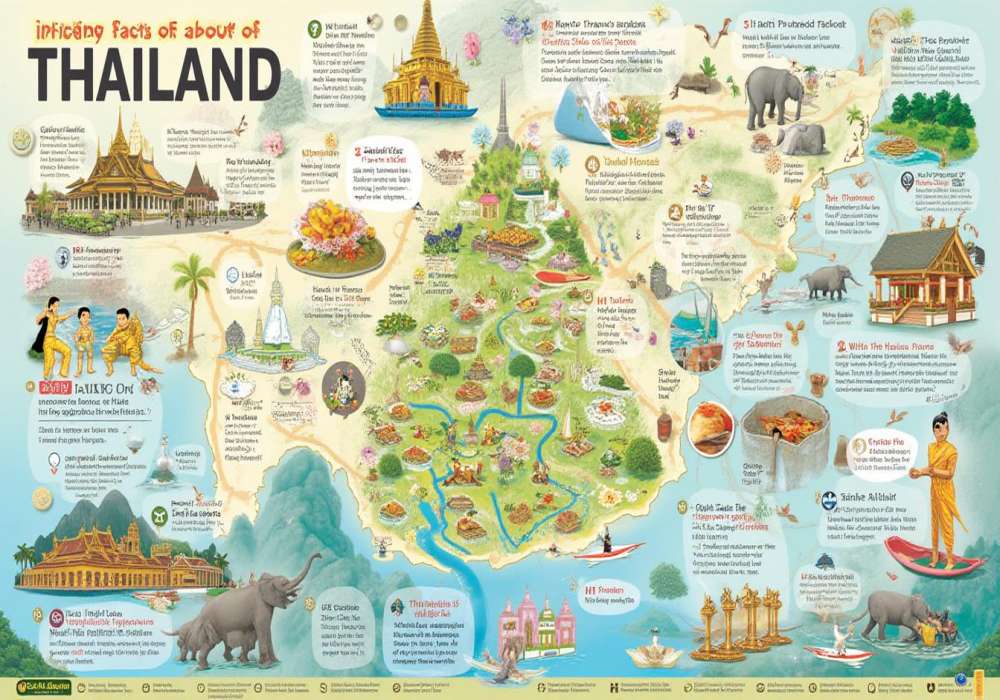
Last Updated At: 01-Sep-2025
15 Fun Facts About Thailand | You Need To Know In 2025
Southeast Asian country Thailand is a mesmerising fusion of historical traditions and contemporary vibrancy. This country, well-known for its broad range of travel experiences, magnificent natural beauty, and gracious hospitality, is also home to a rich cultural legacy. Thailand offers a striking contrast of urban vitality and tranquil natural beauty, from the bustling streets of Bangkok, its capital, adorned with elaborate temples and bustling markets, to the peaceful beaches of Phuket and Koh Samui. Despite being known for its outstanding Thai cultural heritage, ornate temples, and exciting festivals, Thailand continues to enchant tourists with its distinct appeal and attraction.
List Of 15 Unusual Facts About Thailand
Let's start with some facts about Thailand when European nations actively conquered new territories around the globe.
- Thailand never had colonisation
- Bangkok is one of the hottest cities
- Thailand with diverse geography
- Unique political system
- Thailand has numerous temples
- Touching someone's head is offensive
- Most expensive cocktail
- One of the major rice exporters
- Red bull birthplace
- Thailand's floating markets
- Chatuchak biggest market in Asia
- Monkey buffet festival
- Longest city name
- Largest crocodile farm
- Respectful habits
1. Thailand never had colonisation
Thailand is unique in Southeast Asia since outside forces have never colonised it. It effectively defended its sovereignty during the 19th and 20th centuries through industrialisation and strategic diplomacy. This allowed the nation to maintain its rich legacy, culture, and language. Thailand is one of the only countries in the region to have avoided the effects of colonisation on its identity and traditions due in part to its historical tenacity.
2. Bangkok is one of the hottest cities
The hottest city in the world is Bangkok. The annual average air temperature is 28°C, but during March and May, it rises to an unbearable 34°C. The city has a reputation for being an oppressively hot metropolis due to the urban heat island effect and an absence of green space.
3. Thailand with diverse geography
Thailand is unique in Southeast Asia because external factors have never occupied it. Throughout the 19th and 20th centuries, it successfully maintained its sovereignty through industrialisation and strategic diplomacy. This allowed the nation to maintain its vibrant heritage, language, and culture.
4. Unique political system
Thailand's political structure, which includes a constitutional monarchy, is unique. While a parliamentary system administers the nation, the King is regarded as its head of state. However, Thailand went through periods of political unrest marked by military takeovers and civilian administrations that rotated. This complex interaction of monarchy, parliamentary democracy, and military influence has uniquely defined the country's political landscape.
5. Thailand has numerous temples
Thailand is recognised for having a strong religious tradition and is home to several temples with exquisite architecture and religious importance. These temples, which range from the well-known Wat Arun in Bangkok to the historic remains of Wat Mahathat in Ayutthaya, are significant places of worship and cultural relics. They give tourists a glimpse into the nation's deeply rooted customs and beliefs.
Read more: Places To Visit In Thailand
6. Touching someone's head is offensive
Thailand views touching someone's head as insulting because it is regarded as the most sacred portion of the body. Doing so is disrespectful because it is thought that the head is where the soul resides. Locals cherish privacy; thus, making the traditional Thai gesture of a small bow with hands clasped is more appropriate and respectful.
7. Most expensive cocktail
The French vodka brand Grey Goose produced the most costly cocktail in Bangkok. The Grey Goose L'Aristocrate, as its name suggests, is a toffee-nosed liquor driven by the affluent lifestyles of the French nobility during King Louis XV's reign.
8. One of the major rice exporters
Thailand is a significant international rice exporter, making a considerable contribution to the market. Consistent output is made possible by its enormous cultivation, advanced farming methods, and good environment. By meeting various international demands, this Southeast Asian country has effectively maintained its position as a critical player in the rice export sector.
9. Red bull birthplace
Thailand is where the popular energy drink Red Bull was first produced. The initial composition was developed in 1976 by Chaleo Yoovidhya and Dietrich Mateschitz, using ideas from a Thai energy drink. The simple lab where Chaleo created the brand served as the seed for an international phenomenon. Thai culture played a significant role in the popularity of Red Bull before it became known worldwide.
Read more: Famous Food Of Thailand
10. Thailand's floating markets
The country's floating marketplaces best capture Thailand's colourful culture and commerce. Vendors can sell various things from traditional boats at these distinctive markets tucked away along waterways and provide a lovely background. Both visitors and residents enjoy the allure of purchasing locally-made items, fresh fruit, and authentic Thai food while immersing themselves in Thailand's market culture.
11. Chatuchak biggest market in Asia
The largest market in Asia is Chatuchak Weekend Market, located in Bangkok. It is a shopper's paradise with over 15,000 stalls and offers various goods, from clothing and handicrafts to pets and antiques. The crowded market is the centre of activity in the area, drawing tourists and locals to explore its winding alleyways and enjoy the lively ambience.
12. Monkey buffet festival
The colourful and vibrant Monkey Buffet Festival in Lopburi, Thailand, honours the community's macaque monkeys. The community provides a lavish feast of fruits, vegetables, and goodies for the monkeys every year, transforming the historic Phra Prang Sam Yot temple into a lively show. These amusing Thai festivals highlight how well humans and these mischievous apes get around.
13. Longest city name
Krung Thep Mahanakhon Amon Rattanakosin Mahinthara Ayuthaya Mahadilok Phop Noppharat Ratchathani Burirom Udomratchaniwet Mahasathan Amon Piman Awatan Sathit Sakkathattiya Witsanukam Prasit Bangkok, Thailand is formally referred to as Prasit. This name holds the Guinness World Record for the longest place name in the world, despite being infrequently used in everyday speech. It captures the capital city of Thailand's rich history and cultural significance.
14. Largest crocodile farm
The largest crocodile farm in the world is the Samutprakarn Crocodile Farm and Zoo in Thailand. It is close to Bangkok and is home to a large variety of crocodile species. Visitors to this unique attraction can experience spectacular crocodile performances while learning about these fantastic reptiles from the informative exhibits.
15. Respectful habits
To demonstrate cultural understanding in Thailand, it is crucial to adopt respectful behaviours. Visitors who greet them with the traditional "wai" gesture while considering seniority are appreciated by the locals. Taking off your shoes when you enter a house or a shrine shows respect. Particularly in religious spaces, dress modestly. Avoid aiming your feet at people or religious symbols. Awareness of these traditions promotes understanding between visitors and Thai culture and travellers.
Also Read: Waterfalls In Thailand
If you want to plan an easy and fun trip to Thailand, Adotrip is a great option for a travel partner. To improve your travel experience, Adotrip provides comprehensive travel guides, carefully planned itineraries, and local expertise. Learn interesting facts about Thailand. Enlist Adotrip's help as you efficiently and conveniently experience top tourist attractions in Thailand.
With us, nothing is far!
Frequently Asked Questions About Facts About Thailand
Q1. What is the capital of Thailand?
A1. Bangkok, the nation's capital, is a thriving metropolis renowned for its lively street life, elaborate temples, and extensive cultural legacy.
Q2. What is the main religion practised in Thailand?
A2. Theravada Buddhism is the predominant religion in Thailand. It has a tremendous cultural impact, influencing customs, holidays, and everyday life. Thai society has its foundations in temples, monks, and rituals.
Q3. Who is the current Prime Minister of Thailand?
A3. Prayut Chan-o-cha is the current prime minister of Thailand.
Q4. What is Thailand's population?
A4. In January 2023, 71.75 million people were living in Thailand. The population of Thailand increased by 114 thousand (+0.2%) between 2022 and 2023, according to data. In Thailand, women constitute 51.5 percent of the population, while men constitute 48.5 per cent.
Q5. What is the national animal of Thailand?
A5. The Thai elephant, which represents power, royal majesty, and cultural significance, is the country of Thailand's national animal. It has been essential to the nation's history, customs, and religious rituals.
Q6. What is a famous Thai dish with noodles?
A6. Pad Thai is one of the most well-known noodle meals in Thailand. It showcases the variety of Thai cuisine by combining stir-fried rice noodles with shrimp, tofu, peanuts, egg, and many fragrant seasonings.
Q7. What is the national sport of Thailand?
A7. Thailand's national sport is Muay Thai, a traditional martial art and combat sport. It is extensively practised and cherished nationwide and is known for its unique skills and cultural significance.
Q8. How many islands makeup Thailand?
A8. There may be over 1,400 islands, each with its charm, in Thailand. Travellers are drawn to well-known destinations like Phuket, Koh Samui, and Koh Phi Phi because of their breathtaking beauty and dynamic cultures.
Q9. What is the major river flowing through Bangkok?
A9. The Chao Phraya River bounds Bangkok, a significant river for transportation and commerce. Its presence is closely linked with the cultural and historical identity of Bangkok.
Q10. What is the national flower of Thailand?
A10. The "Ratchaphruek" or "Golden Shower Tree" (Cassia fistula) is Thailand's national flower. Its yellow blossoms represent the nation's natural beauty and a sign of wealth.
--- Published By Adotrip
Latest Blogs
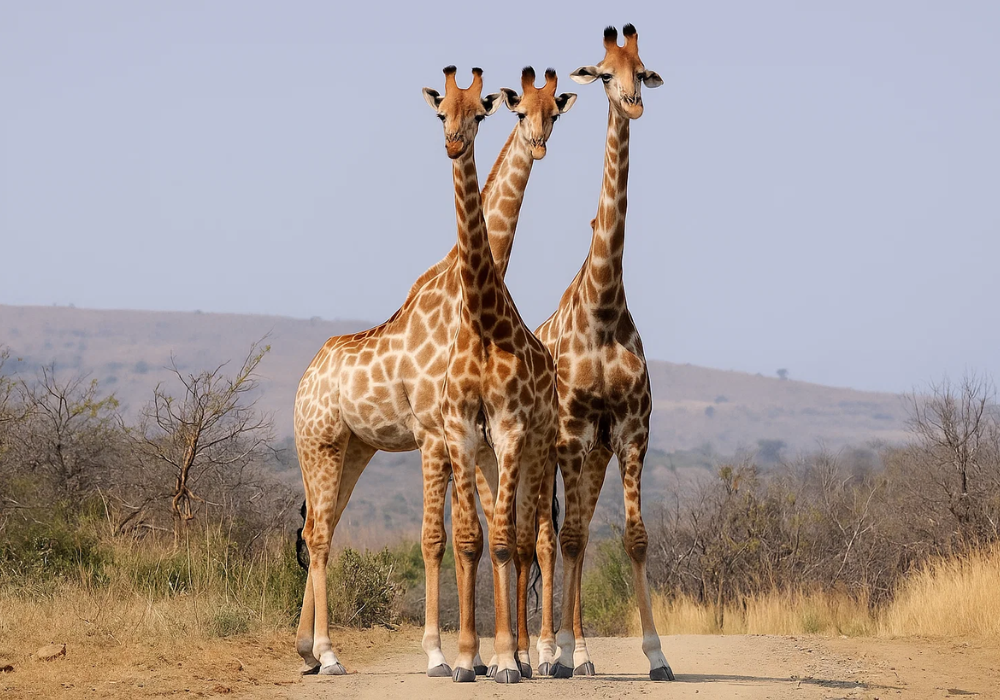
Cash in the Wild: My Safari Adventure Across Kenya with Only...

One Day Picnic Spot Near Pune - Adventure, Trekking and Natu...
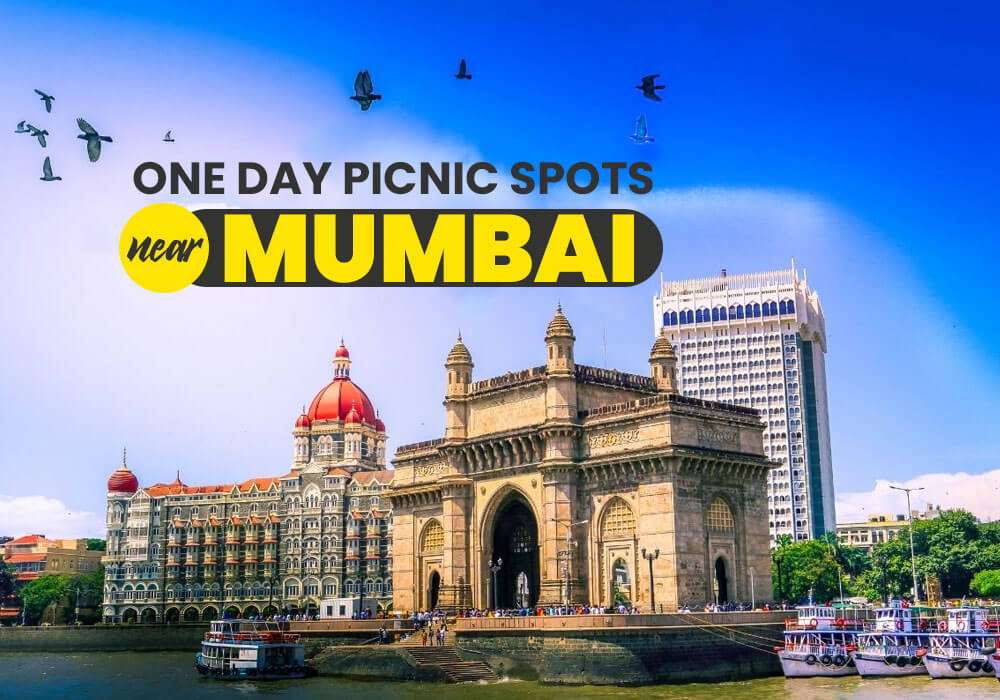
One Day Picnic Spots Near Mumbai - Monsoon, Adventure, Beach...
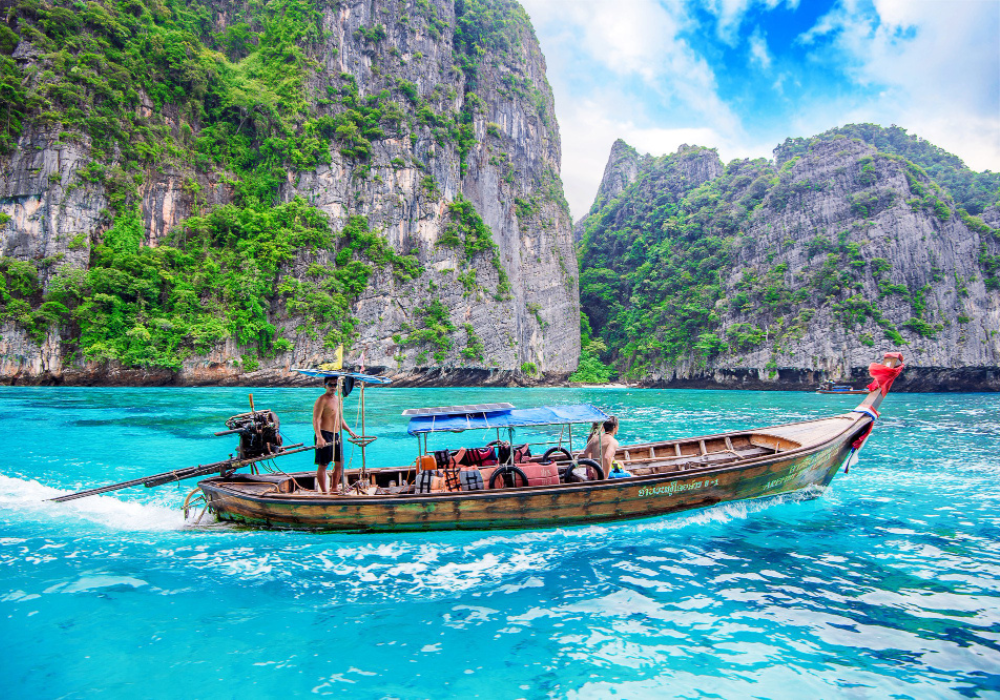
The Best Places to Go in Thailand in 2025
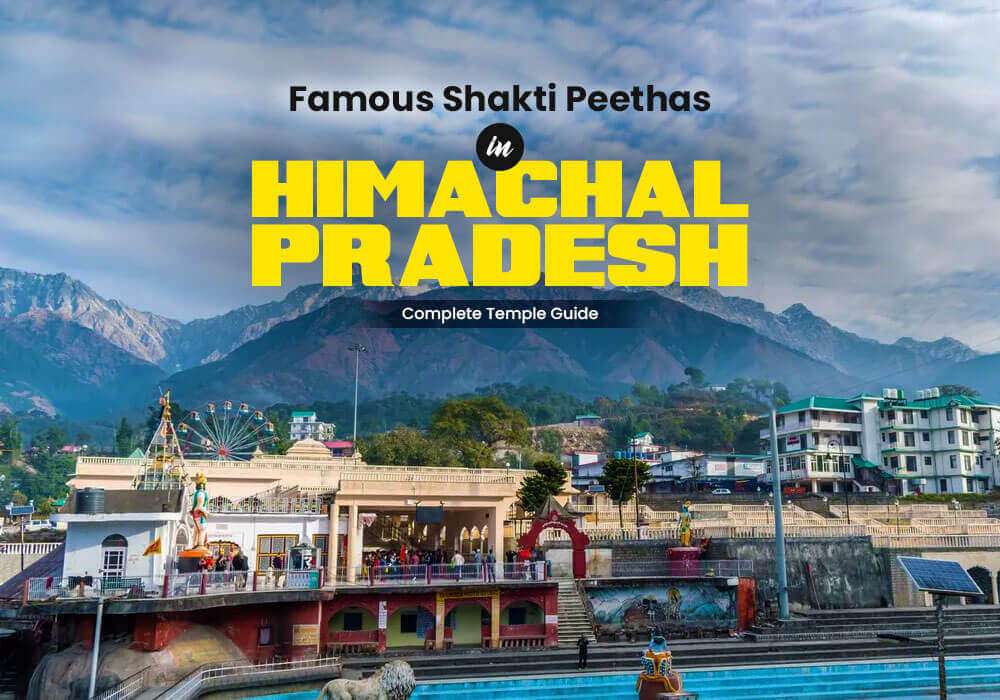


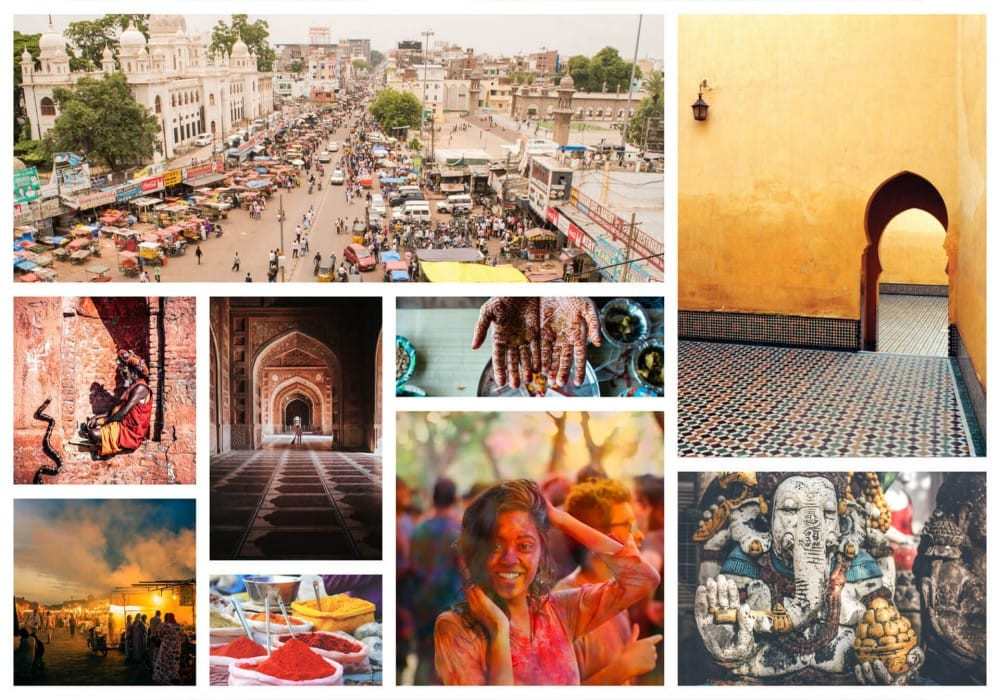
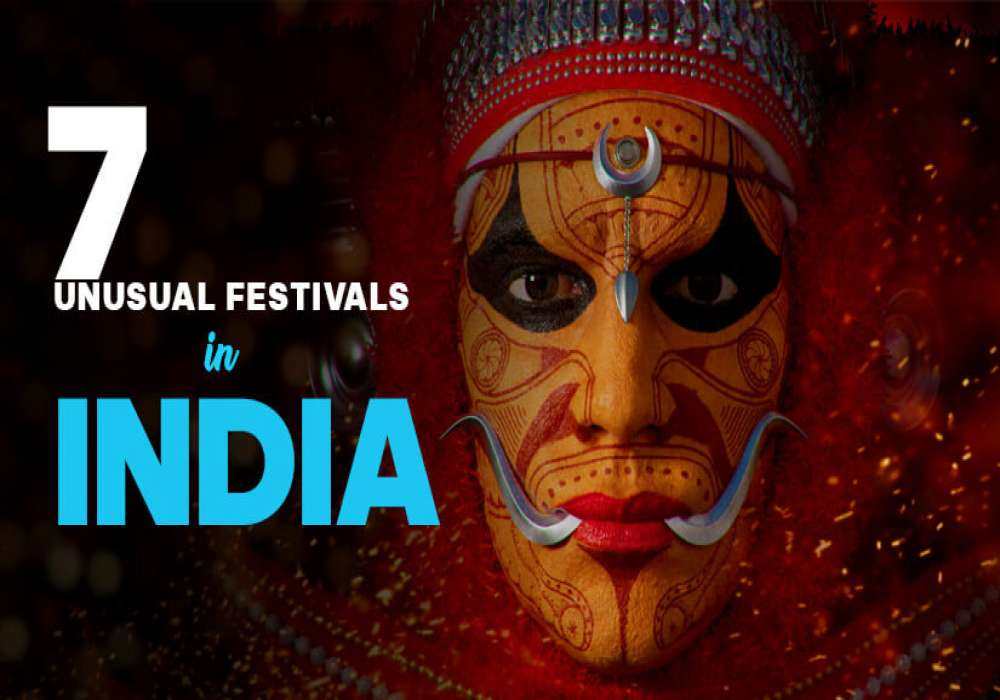


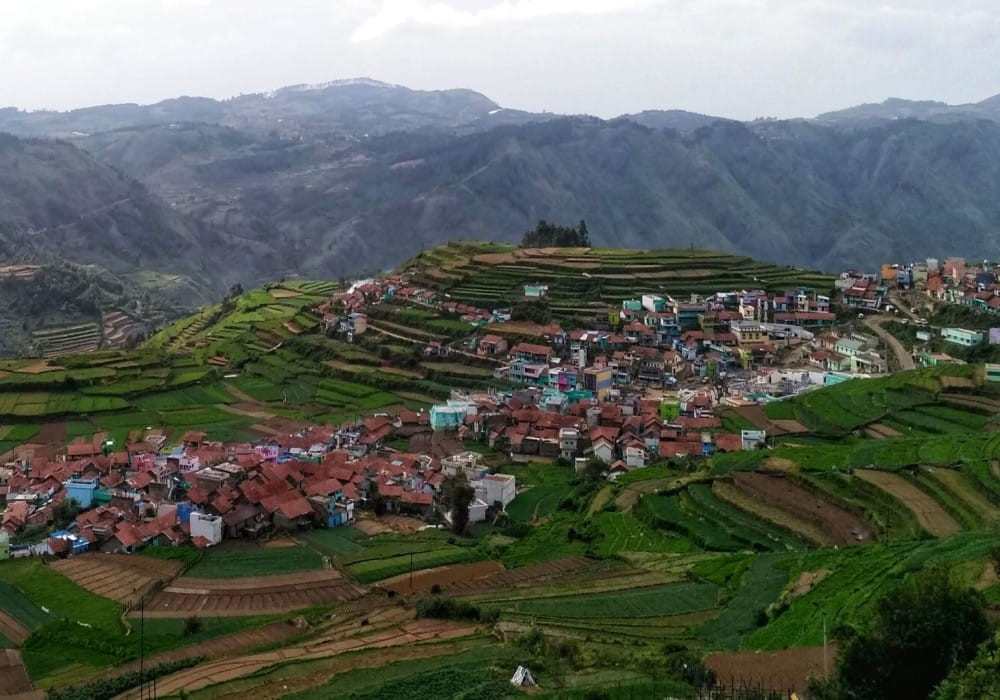

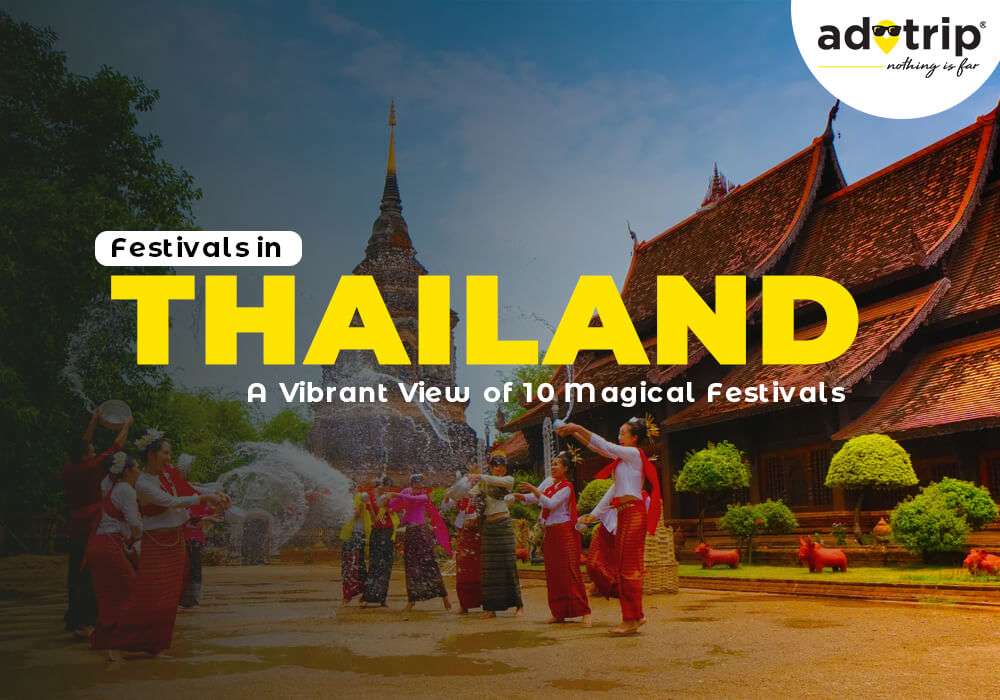
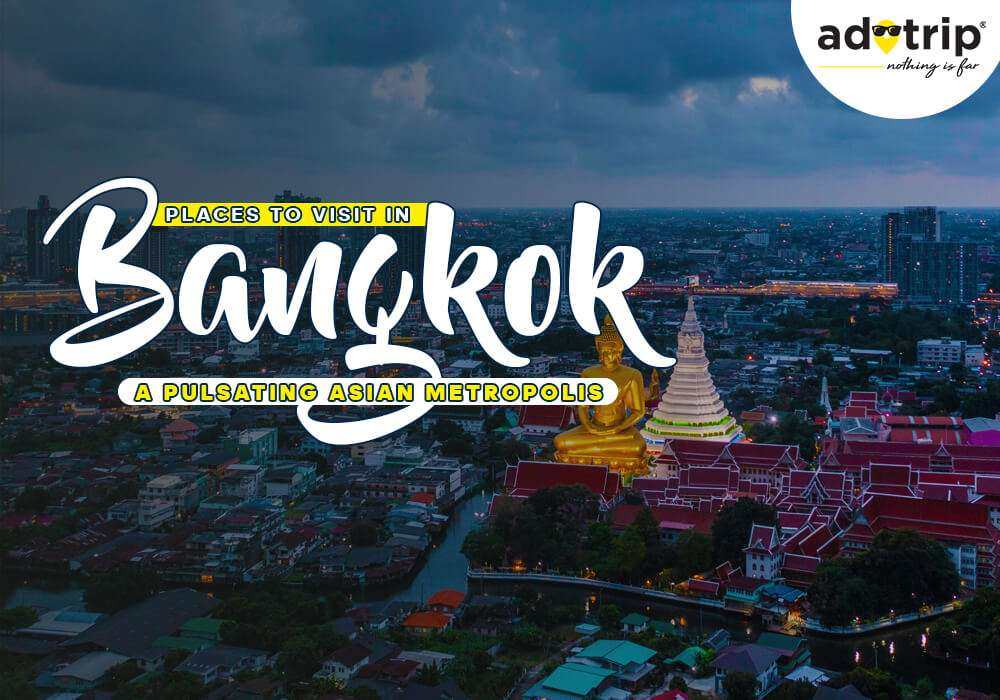
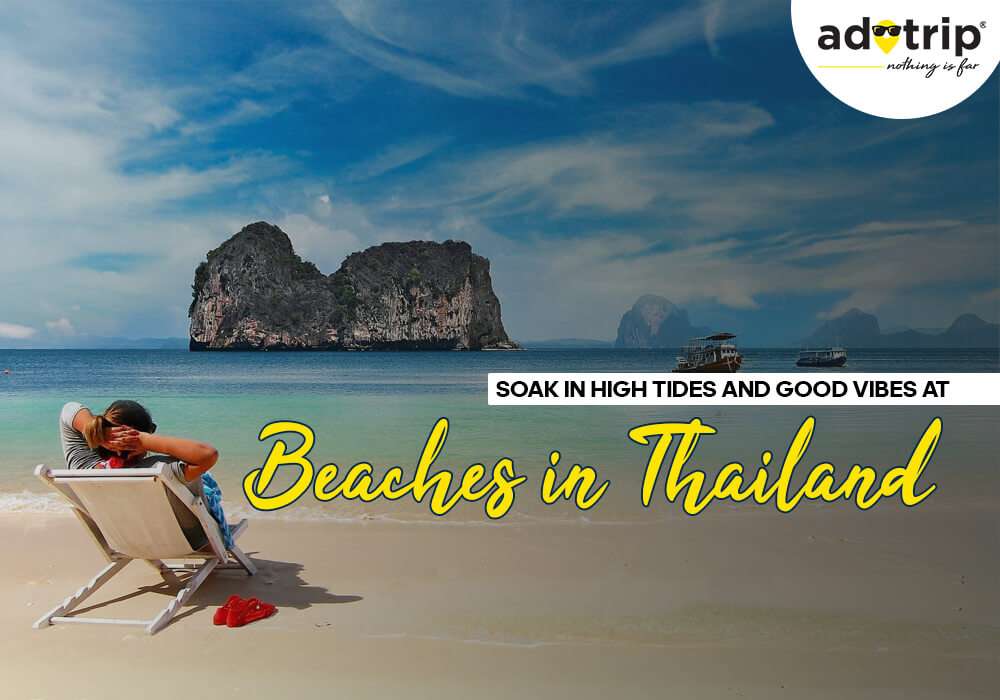
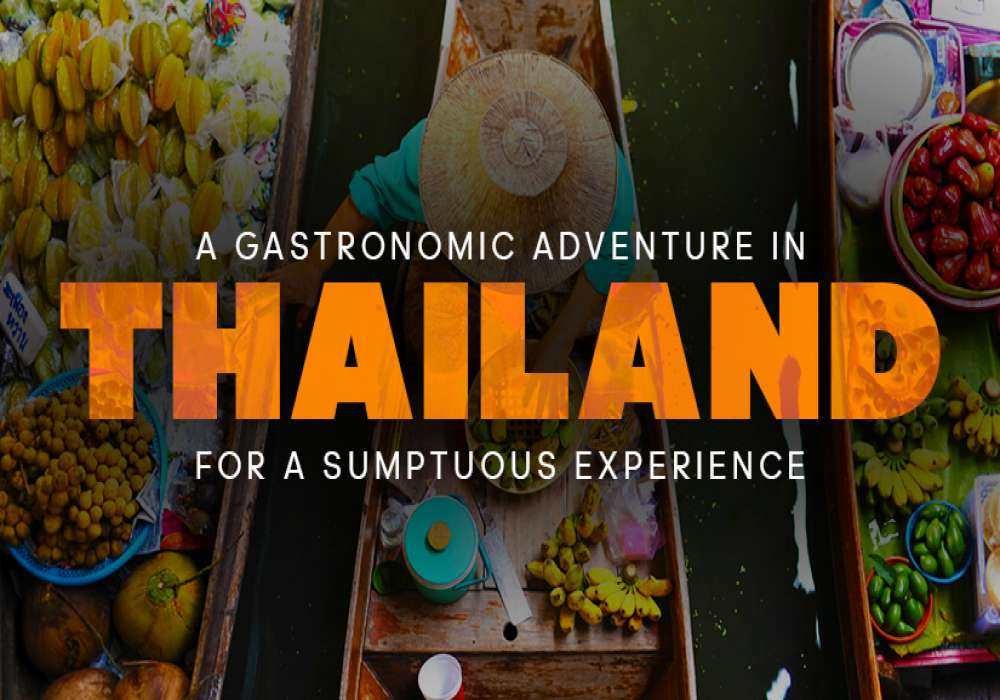
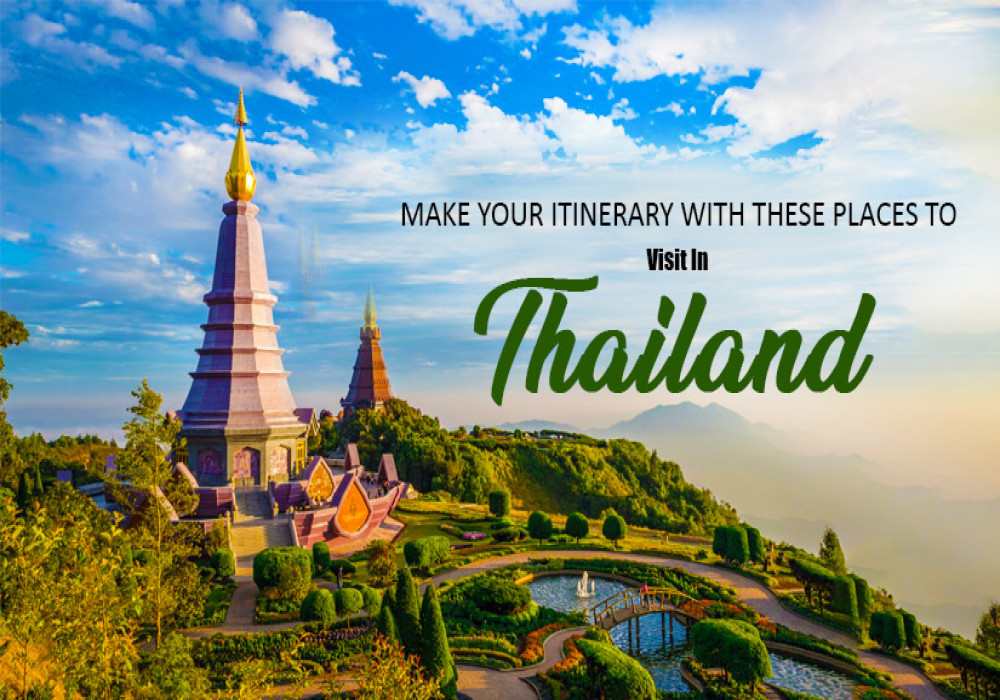
 Dubai
Dubai Malaysia
Malaysia USA
USA





